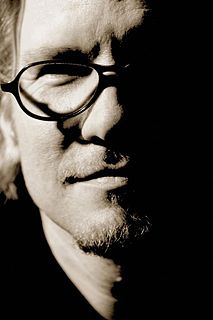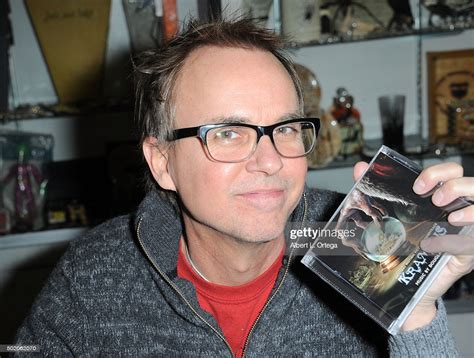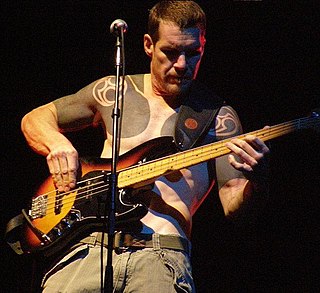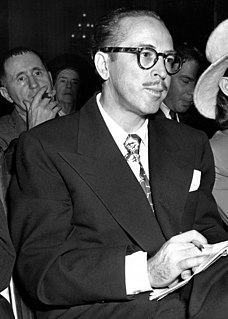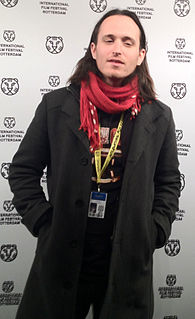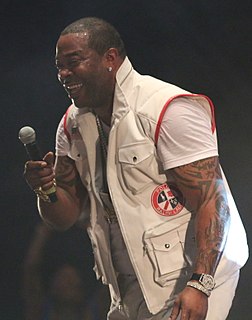A Quote by Paul Haslinger
After moving to Los Angeles in the early '90s, I started looking into "music for picture" more seriously and in broader scope. My collaboration as a programmer and arranger with Graeme Revell exposed me for the first time to the full spectrum of film music, including the hectic demands of orchestral scoring and the power politics surrounding the finalization of any score for a major motion picture in Hollywood.
Quote Topics
After
Angeles
Any
Broader
Collaboration
Demands
Early
Exposed
Film
Film Music
First
First Time
Full
Hectic
Hollywood
Including
Looking
Los
Los Angeles
Major
Me
More
Motion
Motion Picture
Moving
Music
Picture
Politics
Power
Power Politics
Programmer
Scope
Score
Scoring
Seriously
Spectrum
Started
Surrounding
Time
Related Quotes
I was playing in a band and was approached to score an independent film. I had never done it, but had written instrumental music, so I figured I could do it. Turns out I loved scoring the film, and took on another couple films before realizing that if I was to be an effective narrative composer, I should study the craft of composition. I stopped taking projects and got a degree in orchestral music composition, and followed that with film scoring studies. Near the end of my degree studies, I started taking on student films as a way to get back into film scoring.
This blacklisting is going to collapse because it is rotten, immoral and illegal. I am one day going to be working openly in the motion picture industry. When that day comes, I swear to you that I will never sign a term contract with any major studio. I will, proudly and by preference, do at least one picture a year for King Brothers, and I will try to make it the best picture that I have it in me to do
This was early '90s and in New York hip-hop was coming on really strong; that was the sort of urban folk music that was almost threatening to eclipse rock music and indie rock music in terms of popularity, which it has certainly gone on to do. But you know, this is the end of the 1980s, beginning of the '90s. The whole independent label thing has really evolved to this incredible point from the early '80s when we started, and there wasn't one record label at all, until a couple people started forming these small labels.
Los Angeles is Hollywood and Hollywood is Hollywood Blvd. It's the first thing you want to see. It's the only thing really that you know about as far as Los Angeles is concerned. And so you go and you look at Joan Crawford's hands and feet and the whole history of American filmmaking is encapsulated in that one little area on that one street. That street, to me, has always been the street of dream.
There's been no major motion picture released by a studio, no independent motion picture, in theaters, with King at the center, in the 50 years since these events happened, when we have biopics on all kinds of ridiculous people. And nothing on King? No cinematic representation that's meaningful and centered.
The American motion picture is the greatest unconscious carrier of propaganda in the world today. It is a great distributor for ideas and opinions. The motion picture can standardize the ideas and habits of a nation. Because pictures are made to meet market demands, they reflect, emphasize and even exaggerate broad popular tendencies, rather than stimulate new ideas and opinions. The motion picture avails itself only of ideas and facts which are in vogue. As the newspaper seeks to purvey news, it seeks to purvey entertainment.
Another picture I hope to be remembered by is this one of the drum major rehearsing at the University of Michigan. It was early in this morning, and I saw a little boy running after him, all the faculty children in the playing field ran after the boy, and I ran after them. This is a completely spontaneous, unstaged picture.
